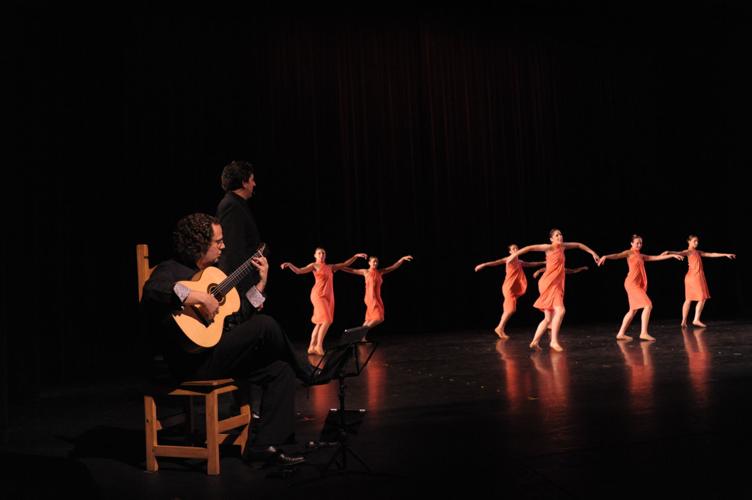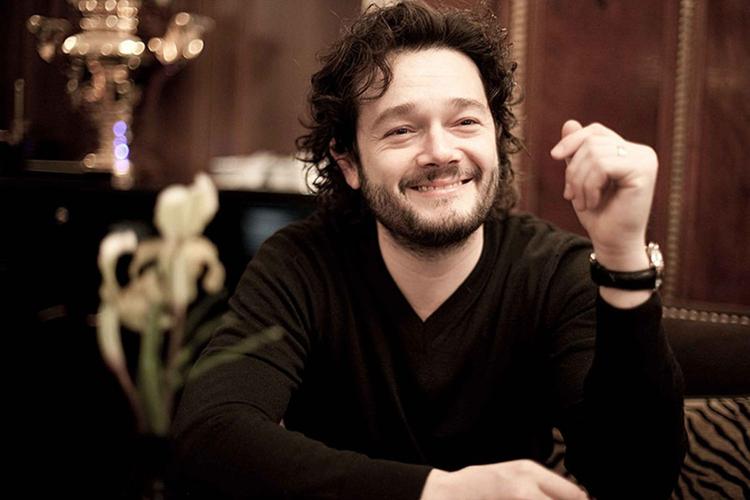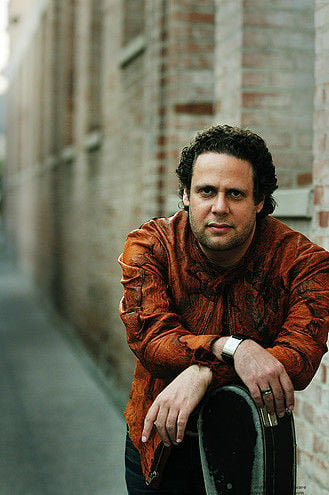As the country debates the merits of building a barrier along its southern border, the Tucson Desert Song Festival is practicing a bit of cultural diplomacy.
The Latin-themed festival, which kicks off Wednesday, Jan. 16, is teaming up with the Consulate of Mexico in Tucson to promote the shared musical culture of Tucson and its Sonora neighbor.
“Culture is one of the languages we speak regardless of our nationality and our language,” said Deputy Consul Enrique A. Gómez. “We are more than glad to do cultural diplomacy.
“We are building cultural bridges, and it has absolutely nothing to do with any (political) discussion other than the richness of the culture and how we enrich each other when we have these connections,” added song fest executive director George Hanson.
Hanson said the idea for the collaboration came after the song festival invited Mexican opera star Arturo Chacón-Cruz to be its artist-in-residence. Chacón-Cruz is a native of Sonora who is widely regarded as one of the country’s brightest singers.
Hanson said it is not in the festival’s interest to get into politics, but when it comes to both sides of the border, “We maintain a rich cultural exchange.”
Hanson was inspired after seeing Chacón-Cruz perform in an opera festival in Mexico.
“I thought, how can it be that as the neighboring state, so few people in Tucson are aware of the richness of this musical culture in Mexico?” Hanson said.
“I think it’s just a win-win for Tucson and certainly Sonora,” added Jeannette Siegel, president of the song festival board of directors. “There has been such a great culture of singing in Mexico. It’s just part of our (shared) culture.”
As part of the agreement, the consulate will co-host Chacón-Cruz in a Jan. 25 recital with the Arizona Opera League of Tucson and Arizona Opera. The consulate will promote the event through its connections to the Mexican communities in Tucson and Sonora, Hanson said.
The 2019 Tucson Desert Song Festival, which runs through Feb. 5, features headliners Puerto Rican soprano Ana María Martínez, Broadway superstar Kristin Chenoweth and jazz great Bobby McFerrin, whose appearance is co-sponsored by the Tucson Jazz Festival.
The song festival will include 15 different productions presented by the festival’s dozen affiliated arts groups, including True Concord Voices & Orchestra and UA Presents. Although the theme is “Latin Celebration,” the repertoire is not strictly Latin, Hanson said. Many of the artists, however, are Hispanic, including tenor Daniel Montenegro, who will sing the role of Alfredo in Arizona Opera’s production of “La Traviata” on Feb. 2, and Colombian-American soprano Vanessa Vasquez, who sings the role of Violetta.
The festival also will feature the premiere of the first-ever flamenco opera, “Llantos 1492,” composed by Israeli flamenco guitarist Adam del Monte.
Del Monte and pianist Mercedes Juan Musotto join a cast that includes soprano Shana Blake Hill, baritones Bernardo Bermúdez and Roberto Perlas Gómez, flamenco vocalists Clara Rodríguez and José Cortés, and narrator Daniel Helfgot for a piano-guitar reduction of scenes from the opera.
Siegel said the festival’s collaboration with Mexico fits into founders Jack Forsythe and Cecile Follansbee’s goal of involving more Hispanic artists in Tucson’s cultural life.
“They are part of our heritage. This isn’t just this year; we want to continue to involve them in Tucson Desert Song Festival and really reach out and get artists from across the border,” she said.
That’s also a goal of the consulate, Gómez said.
“Here at the Consulate of Mexico, we have a cultural agenda that goes on all year,” he said, noting the consulate’s collaboration with the Southern Arizona Symphony Orchestra the past several years for the annual Mexican Independence Day concert at Fox Tucson Theatre.
“Mexico is, today, the country that produces the largest number of opera singers in the world. This is something that we are really proud of.”
“There is a lot of opinions and a lot of very strong feelings about Mexico and the U.S., and Arizona is in a particular place for this,” added Chacón-Cruz. “If we can convince one person that we have something to offer and something to work together with, I think we will win a little battle here.”







